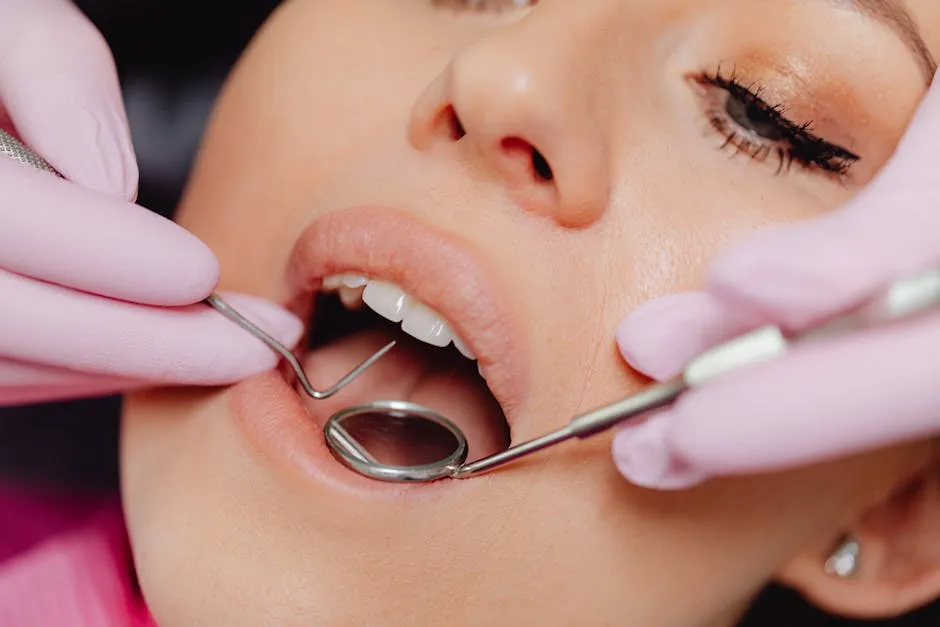
Why Does My Jaw Hurt? Understanding the Causes and Treatments
Introduction
Jaw pain is more common than you might think. Many people experience it at some point in their lives. Understanding the causes of jaw pain is crucial for effective treatment. When your jaw hurts, daily activities like eating and speaking can become challenging. This discomfort can affect your overall quality of life, making it essential to identify the reasons behind it. If you’re searching for a quick fix, consider a TMJ Relief Mouth Guard. It can help alleviate some of the discomfort by reducing pressure on your jaw while you sleep.Summary and Overview
Jaw pain refers to discomfort in the jaw area, often linked to dental or medical issues. It can stem from various sources, including teeth, jaw joints, and surrounding muscles. Sometimes, jaw pain can also relate to other symptoms like headaches or earaches. Recognizing these connections is vital for timely diagnosis and treatment. Early intervention can prevent complications. Common causes of jaw pain include temporomandibular joint disorders, dental problems, bruxism, trauma, and sinus issues. While some causes are common, others may be rare yet serious. Understanding these factors can help guide the right treatment approach. If you’re looking to ease muscle tension, a Foam Roller for Muscle Tension can be a game-changer. It’s great for relieving not just jaw tension but overall muscle tightness.
Common Causes of Jaw Pain
Temporomandibular Joint Disorders (TMJ/TMD)
The temporomandibular joint (TMJ) connects your jaw to your skull. It allows for smooth movement when you speak or chew. TMJ disorders, often referred to as TMD, can cause pain and discomfort in the jaw. Symptoms may include clicking sounds, jaw locking, and headaches. Factors contributing to TMD include teeth grinding, stress, and jaw misalignment. Statistics show that approximately 1 in 8 people experience TMJ disorders, with women being more affected. If you suspect TMD, consulting a dentist is essential. They can provide guidance and treatment options tailored to your needs. For those dealing with jaw discomfort, a Jaw Exerciser for Jaw Pain Relief can help strengthen jaw muscles and alleviate some of the discomfort.
Dental Problems
Dental issues are significant contributors to jaw pain. Common problems include cavities, abscesses, and gum disease. When dental health declines, it can lead to discomfort in the jaw area. Infections like abscesses can spread pain to the jawbone, making timely dental care crucial. Studies indicate that a considerable percentage of jaw pain cases relate to dental problems. Regular dental check-ups can help catch these issues early. If you experience jaw pain, scheduling a dental appointment is wise. Don’t forget to nourish your body with a soothing Herbal Tea Assortment. It’s perfect for calming those nerves while you sip away your worries.
Teeth Grinding (Bruxism)
Bruxism, or teeth grinding, often occurs during sleep. This condition can put immense stress on the jaw, leading to pain and discomfort. Many factors contribute to bruxism, including stress, anxiety, and misaligned teeth. Symptoms may include worn-down teeth and headaches. Research shows that a significant number of adults grind their teeth, which can worsen jaw pain. If you want to understand more about why certain individuals are more prone to teeth grinding at night, consult this article on teeth grinding. Consulting a dentist is advisable if you suspect bruxism. They may recommend a mouthguard to protect your teeth and relieve strain on your jaw. For those sleepless nights, consider a Teeth Grinding Night Guard. It can save your teeth and give you a peaceful night’s sleep.
Understanding the implications of bruxism is vital for managing jaw pain effectively. why is seeking professional help crucial for managing bruxism in the coming months
Trauma and Injury
Injuries to the jaw can lead to significant pain. This includes accidents, falls, or sports injuries. Trauma can cause bruising, swelling, or fractures, resulting in immediate discomfort. Signs of injury may include difficulty opening the mouth and severe pain. Statistics reveal that jaw injuries are relatively common, particularly among active individuals. If you’ve experienced trauma to your jaw, seeking medical attention is crucial. Early treatment can prevent further complications. For those moments of discomfort, a Heating Pad for Pain Relief can work wonders in soothing those sore muscles.
Sinus Issues
Sinus infections can lead to referred pain in the jaw. When the sinuses become inflamed, you may feel discomfort in the upper jaw area. Symptoms of sinusitis often include nasal congestion and facial pressure. Data indicates that many sinusitis cases can cause jaw pain. If you suspect sinus issues are affecting your jaw, consulting a healthcare provider is essential. They can help diagnose and treat the underlying condition, alleviating jaw discomfort.
Other Medical Conditions
Heart Conditions
Jaw pain can be an unexpected sign of heart problems. Though rare, it’s crucial to recognize this connection. If you experience jaw pain alongside chest discomfort, shortness of breath, or nausea, you might be facing a heart issue. Studies indicate that about 5-10% of heart attack patients report jaw pain as a symptom. This referred pain often occurs on the left side. If you notice severe symptoms, don’t ignore them. Call emergency services immediately.
Trigeminal Neuralgia
Trigeminal neuralgia is a condition that affects the trigeminal nerve, which carries sensation from your face to your brain. It can cause severe, sharp pain in the jaw, often described as a jabbing or shock-like sensation. This pain may be triggered by simple activities, such as talking or brushing your teeth. Symptoms often occur on one side of the face, and the condition is relatively rare, affecting about 4-5 out of every 100,000 people. If you suspect this condition, seeking a neurologist’s help is vital for effective treatment options.
Professional Treatment Options
When jaw pain becomes a persistent issue, professional treatment options are essential. Various therapies can help alleviate discomfort and restore function. Physical therapy is often recommended. It includes exercises to strengthen jaw muscles and improve mobility. Dental interventions are another avenue. Dentists may provide mouthguards for teeth grinding or adjust misaligned teeth. In more severe cases, surgical options might be necessary. Procedures can address structural issues or remove problematic growths. Personalized care plans are vital. Every individual’s situation is unique, and a tailored approach ensures the best outcomes. Research indicates that treatment success rates vary widely. For instance, physical therapy has shown improvement rates of around 75% for TMJ disorders, while dental interventions can lead to significant pain reduction.

Conclusion
Understanding the causes and treatments of jaw pain is critical for managing this discomfort. Being proactive about your health can lead to better outcomes. Regular check-ups and timely consultations with professionals can make a significant difference. Don’t hesitate to seek help if jaw pain persists or worsens. Stay informed and consult professionals for jaw health.
FAQs
What should I do if I experience sudden jaw pain?
If you feel sudden jaw pain, start by resting your jaw. Avoid any hard foods that require excessive chewing. You can apply a cold pack to reduce swelling. If the pain is intense or lasts more than a few hours, seek medical help. It’s crucial to see a dentist if you notice swelling, fever, or difficulty moving your jaw. These could be signs of a more serious condition.
Can stress cause jaw pain?
Yes, stress can lead to jaw pain. When stressed, many people clench their jaws or grind their teeth. This tension can result in soreness and discomfort. You might notice this pain more after a long day or during stressful situations. Practicing relaxation techniques like deep breathing can help reduce this tension. Don’t underestimate the impact of stress on your jaw health.
How can I prevent jaw pain?
Preventing jaw pain involves a few lifestyle adjustments. First, practice good oral hygiene to avoid dental issues. Secondly, manage stress through activities like yoga or meditation. If you grind your teeth, consider using a mouthguard at night. Also, try to avoid chewy foods that strain your jaw. Lastly, maintain good posture, especially when sitting for long periods. This approach can significantly reduce your risk of experiencing jaw pain.
Is jaw pain a sign of a serious condition?
Jaw pain can sometimes indicate a serious issue. If you experience severe pain, swelling, or difficulty opening your mouth, it’s essential to seek help. Additionally, jaw pain accompanied by chest pain or shortness of breath could signal a heart problem. Other concerning symptoms include high fever or pain that doesn’t improve with home care. Always listen to your body and consult a professional when in doubt.
What can I do at home to relieve jaw pain?
Several home remedies can help relieve jaw pain. Start with applying a heat or cold pack to your jaw. Over-the-counter pain relievers like ibuprofen can also provide relief. Eating soft foods can minimize strain on your jaw. Gentle jaw exercises might help as well; just be careful not to overdo it. Lastly, practicing relaxation techniques can ease muscle tension, promoting overall comfort.
All images from Pexels




